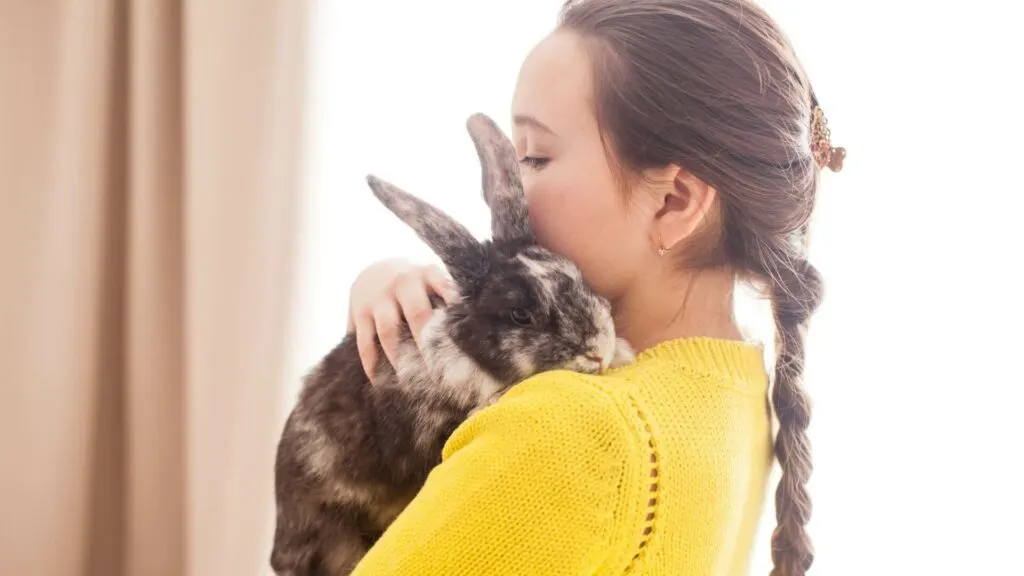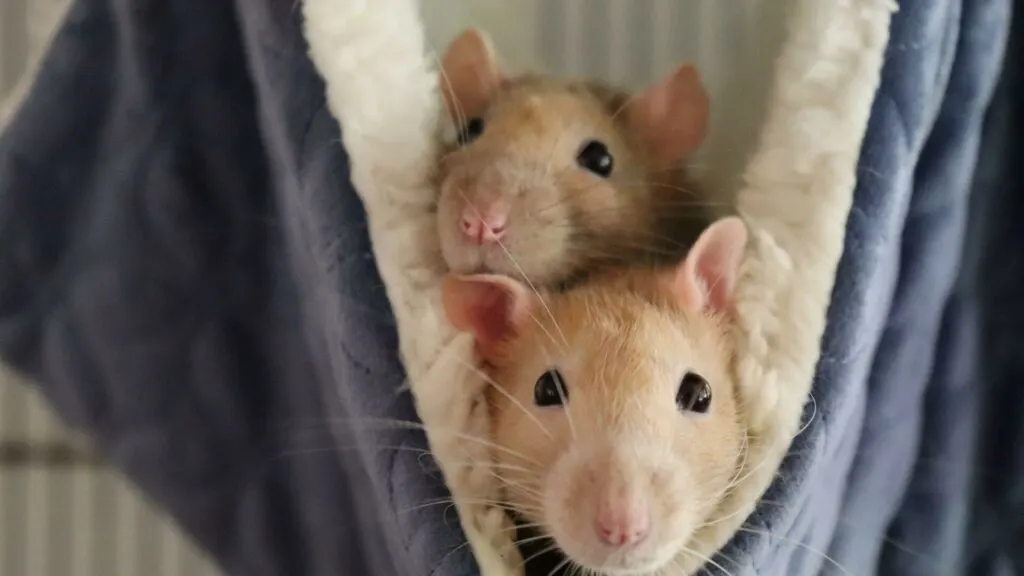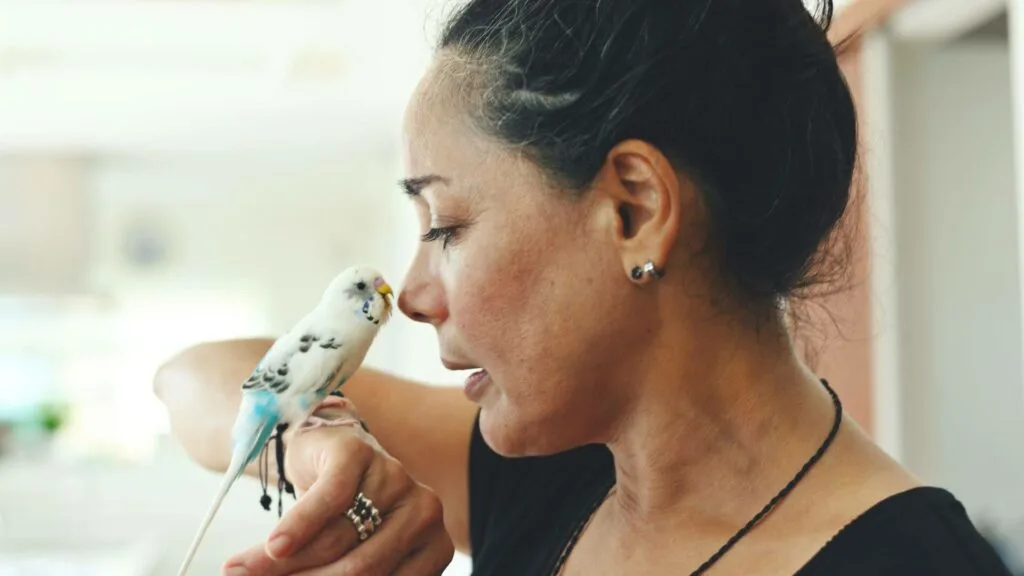Pets provide us with affection, comfort, and companionship — all things that can truly have a positive impact on our mental health. If you’re considering adopting a pet to help you better cope with your anxiety, then the first thing to consider is the type of species.
While dogs and cats are widely regarded as wonderful pets, they aren’t for everyone. They often have demanding care needs and require a lot of attention throughout the day. Not only that, but they can also be expensive to care for, especially when you factor in vet checkups and all the food and treat purchases.
That’s where small pets come in! There are plenty of small animals that can make fantastic pets for individuals with anxiety, and they’re typically more affordable and easier to care for.
Below, we’ll share some of the best small pets for anxiety. We’ll also explain how to get a pet legally recognized as an emotional support animal (ESA), if this is something that would benefit you.

Rabbits
Rabbits are adorable, cuddly companions who bond to their humans closely and love to play games. They’re also intelligent and can be taught various tricks, from retrieving objects to spinning. Rabbits are particularly well-suited to individuals who struggle with loud noises since they tend to be quiet and prefer to express themselves through body language.
Many rabbits enjoy snoozing on their owners’ laps, and their soft, plush coats can be incredibly soothing to touch. While rabbits are small — most only weigh up to 10 pounds — they do need a lot of space where they can hop, run, and stretch their legs freely.
Guinea Pigs
Guinea pigs are sweet-tempered, small pets who don’t need a whole lot of space to thrive. They can be reserved at first and take some time to get accustomed to being petted and held. However, most guinea pigs warm up quickly to physical contact.
Guinea pigs are vocal with their emotions, which can be reassuring for an individual with anxiety. They’ll communicate exactly when they are happy or excited through purrs and wheeks, and their joyful noises are sure to boost their owner’s mood too.
Guinea pigs appreciate a quiet environment with plenty of hiding spots where they can retreat. As sociable and playful animals, they’re best kept in same-sex pairs — they often become lonely without company.

Rats
Yes, we know how it sounds, but don’t discount them immediately. Rats are incredibly misunderstood animals and actually have a whole lot of love to give! They’re cheerful, sociable, and inquisitive, and they’re affectionate with humans they form close connections with. They rarely bite and also like to keep themselves clean.
What’s more, rats are extremely intelligent. Just like dogs, they can learn to recognize their own names and can master a whole range of tricks, from jumping through hoops to fetching and pawing. They also love to play and get up to all sorts of entertaining antics, something that’s sure to make you smile no matter how difficult times get.
Fish
Fish may not be cuddly, but that doesn’t mean they can’t help relieve anxiety in their own unique way! They can be extremely soothing to watch, even if you can’t engage with them directly. Maintaining their tank can also give you a strong sense of purpose while keeping your mind occupied — both things that can help reduce intrusive thoughts.
There are thousands of fish species out there, each unique in their personality and needs, so you’re sure to find a fish you connect with. Goldfish can be a great option for first-time pet owners because they’re hardy and have minimal care needs.
Birds
Studies have shown that observing birds can help to minimize feelings of stress, depression, and anxiety. So, it should come as no surprise that birds can make wonderful small pets for individuals with anxiety conditions!
Birds are intelligent and add a touch of color (and life) to any home. Many bird species, such as parrots and parakeets, can also be taught to speak and have conversations with their owners. This communication serves as an endless source of entertainment, and it also means you’ll always have a friend to talk to.

How to Get My Pet Legally Recognized as an ESA
Pets can fulfill the role of an emotional support animal without needing to be legally recognized. However, taking the time to get them recognized does bring with it certain legal protections. For example, under the Fair Housing Act federal law, emotional support animals are allowed to live with their owners in rented accommodation and can’t be subjected to pet-related policies, restrictions, or fees.
To get your pet legally recognized as an ESA, your anxiety condition must have been officially diagnosed by a licensed mental health care professional, and it must also impact at least one major area of your life (such as your ability to work).
You will need to then arrange an ESA assessment with a health care provider, who will provide you with an official ESA letter if they deem an ESA is right for you. The letter is a document that affirms you require an ESA and are entitled to legal protections.
No other documentation is required after you have obtained your ESA letter. However, you can choose to get ESA certification with a third party if you want another form of documentation to show to the people around you. Some ESA certificates also come with additional benefits. For example, US Service Animals provides legal support to those who get their ESA certified through them.

Jessi is the creative mind behind The Coffee Mom, a popular blog that combines parenting advice, travel tips, and a love for all things Disney. As a trusted Disney influencer and passionate storyteller, Jessi’s authentic insights and relatable content resonate with readers worldwide.
